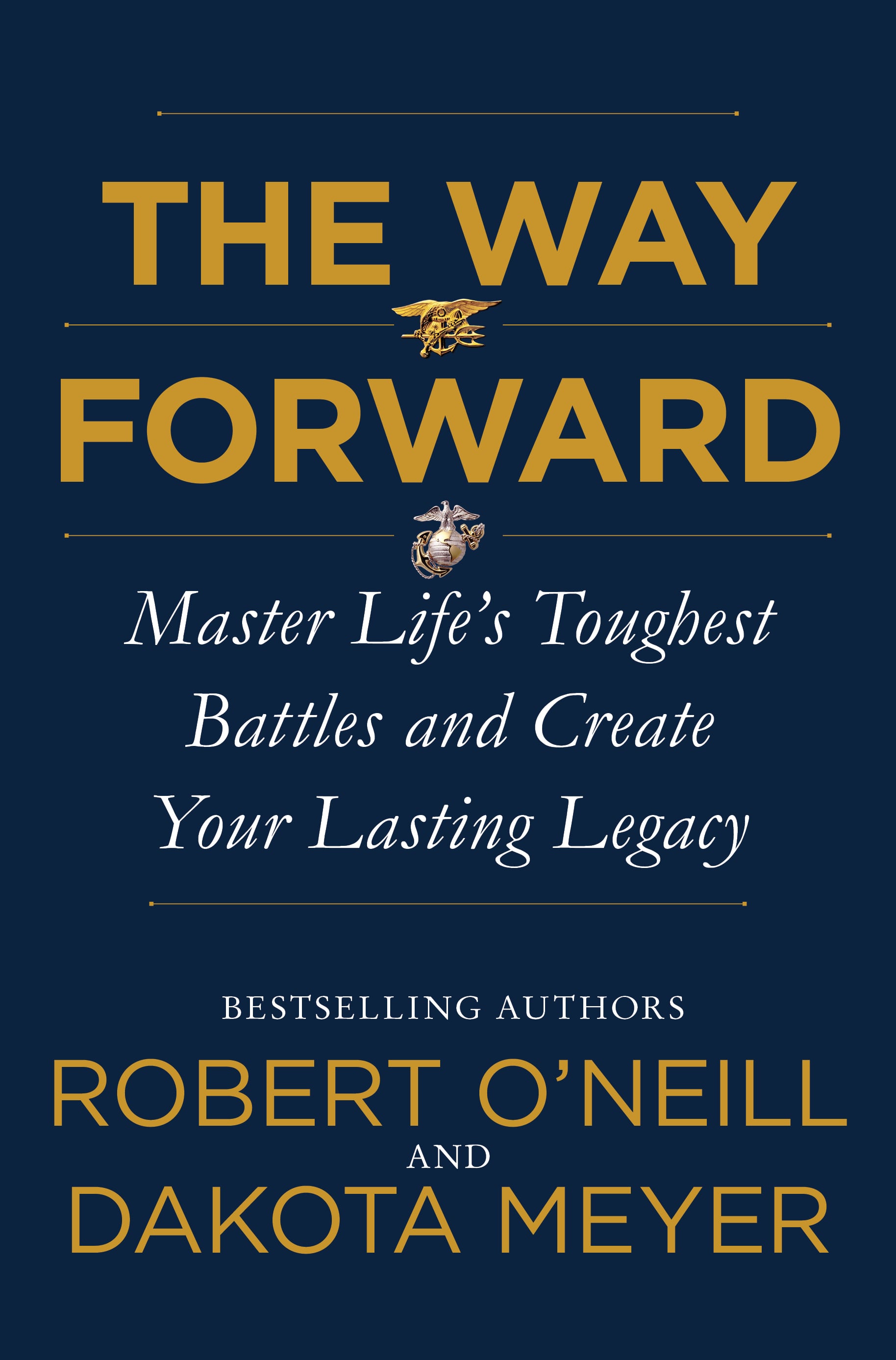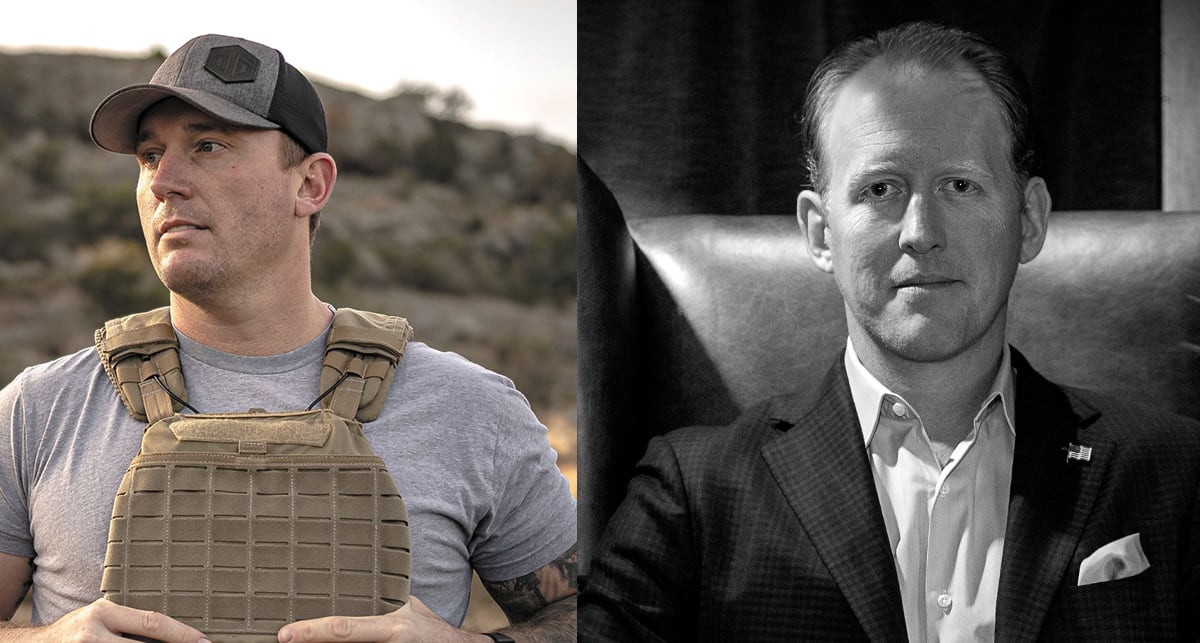Two veterans of some of the most intense fighting of America’s post-9/11 wars put down scenes from their lives before, during and after combat.
Alongside those colorful stories are lessons the two men ― one Marine sniper who received the Medal of Honor, the other a multi-high profile combat tour Navy SEAL veteran who served on missions later made into feature films.
Dakota Meyer, 34, enlisted in the Marine Corps in 2006 and deployed first to Iraq in 2007 and then to Afghanistan in 2009.
On his second tour Meyer braved enemy fire to find three missing Marines and a Navy corpsman after an ambush. The four men had been killed by insurgents, stripped of their weapons and gear.
Meyer fought an insurgent trying to take their bodies, killing him with a rock during a kill-or-be-killed struggle. The Marine then helped recover the bodies, evacuated a dozen other fellow fighters and provided cover for two dozen other Marines and soldiers under fire.
For those actions, Meyer was awarded the Medal of Honor.
Robert O’Neill, 46, enlisted in the Navy in 1996 and graduated the Basic Underwater Demolition School, or BUD/S class 208.
O’Neill would serve on many combat deployments, receiving two Silver Star Medals and four Bronze Star Medals.

Though he participated in numerous missions, some of which were later retold in books and film, it was his mission with Naval Special Warfare Development Group on the May 2, 2011, Operation Neptune Spear, which killed al-Qaida founder and leader Osama bin Laden.
The two combat veterans co-authored “The Way Forward: Master Life’s Toughest Battles and Create Your Lasting Legacy” to share with readers their own origin stories, military experiences and life lessons learned along the way.
Military Times interviewed O’Neill shortly before the book’s release earlier in 2022.
*Editor’s Note: The following Q&A interview has been edited for clarity and length.
Q: Both you and Dakota Meyer have written books before about some of your combat experiences. What was the motivation for this collaboration?
A: It’s some military, some drinking stories, hunting stories, all three.
We tried to throw in a few stories that no one had heard before. And we want people to know we can be relatable. If Dakota can be a football player and male cheerleader raising chickens in Kentucky and I can be a pasty white guy from Montana who’s not in really good shape and can’t swim we’re kind of proving that we all come from somewhere that we all have that in common and we can all do anything we want.
The point of the book is you don’t need to have been to war to have had traumatic experiences.
“I wasn’t being modest when I said I didn’t deserve the medal, and I wasn’t lying when I said I didn’t want it. Gosh, I didn’t want that medal. My guilt over what had happened in Ganjgal — that four of my guys had been killed when I had been tasked with providing them security — hung over me like a poison cloud.”
— -Dakota Meyer, Marine sniper, recipient of the Medal of Honor for combat actions in Afghanistan
Q: You two take turns in the book telling stories from your past but also offering lessons with those stories. Why did you decide to write the book this way?
A: It was seriously writing them on a napkin. I think we broke the lessons down into parts and then kind of just did an outline and say okay, maybe we start with a story. For example, one of the lessons was how to keep a tight circle, either of friends or in a unit. If you keep a tight circle the adventures you have, the stuff that happens, it’s almost ridiculous. My experience is that if you can keep morale high it helps keep a tight unit. Your team is going to be better and want to work together. We didn’t know if this was a memoir, self
help or some kind of nonfiction biography. But the perfect plan only exists in the planning room. So, we didn’t say ‘we’re going from point A to point B to point C.
Q: What’s a lesson you could pass on to Military Times readers, soldiers, airmen, sailors and Marines?
A: Well, the first thing, obviously, is don’t be afraid to ask questions.
Don’t take shortcuts because shortcuts and boredom can get you hurt or killed. That’s where complacency kills. The rules are in place for a reason. It’s always the time when you take a shortcut that you get hurt, whether it’s on the flight line or doing electrical work as a Seabee, whether it’s on the firing range as a Marine. A shortcut may have worked before, but it’s the one time that it doesn’t work that gets you hurt.
Q: Any concluding thoughts, saved rounds?
A: Keep it simple and master the basics. Don’t worry about the end stage. Worry about the guy in front of you, how to protect his or her back. It’s everything from close quarters battle to shooting free throws. Always master the basics. Don’t get too complex. Complexity and complacency will kill you.
Todd South has written about crime, courts, government and the military for multiple publications since 2004 and was named a 2014 Pulitzer finalist for a co-written project on witness intimidation. Todd is a Marine veteran of the Iraq War.





